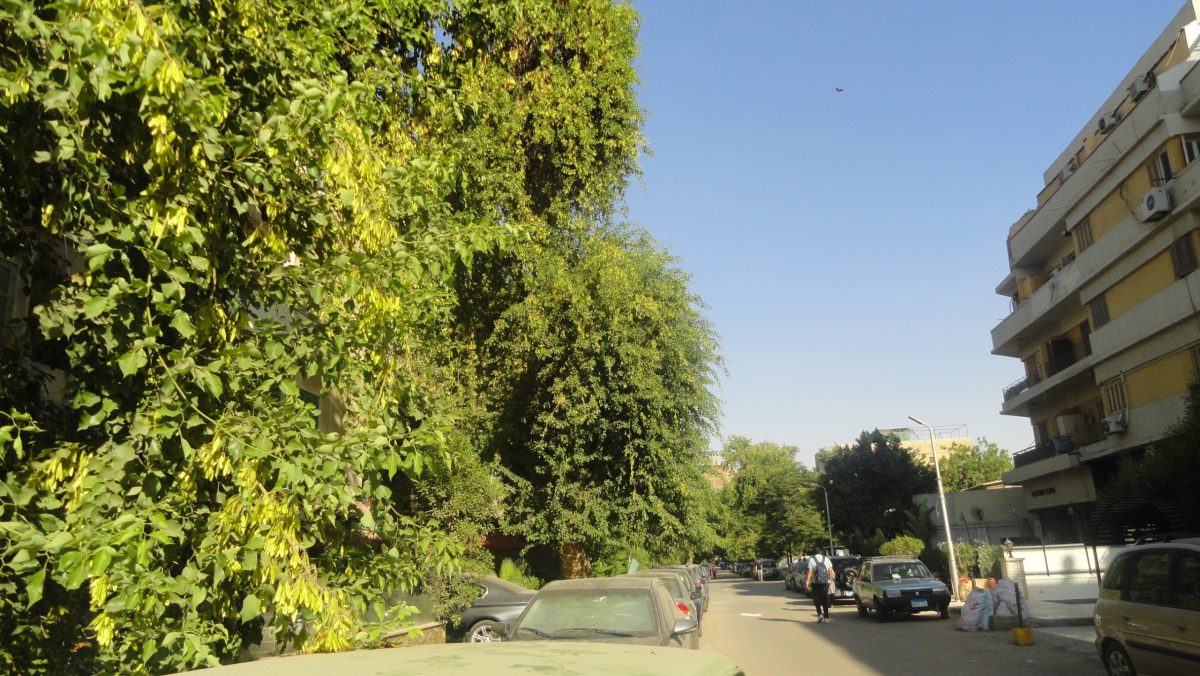As one of millions of Egyptians living abroad, I often struggled with my Egyptian identity, feeling homesick for a place I’d never really lived in. There was always one movie that defined this experience, the struggle of a diaspora that has almost quadrupled since the film’s release. Molasses (in Arabic, عسل إسود) follows 30-year-old Egyptian-American Masry El-Araby (whose name aptly translates to ‘Egyptian the Arab’) as he returns to Cairo after 20 years in the United States. The film’s title immediately sets out the themes of culture and struggle. Molasses are commonly eaten in Egypt, from eating them in Feteer Meshaltet (an Egyptian pastry) to combining them with typically savoury tahini to make a balanced dip. But the word ‘Molasses’ implies more than that – a feeling of bittersweetness, one I’ve felt every time my plane takes off from Cairo International Airport. Through Masry’s journey, the audience navigates nostalgia and the ever-changing Cairo landscape in a comedic yet thought-provoking way.
The journey begins as Masry arrives at Cairo International Airport, proudly displaying his Egyptian passport, only to be met with the disadvantaged treatment many Egyptians face. As he descends into Cairo’s chaos, Masry finds himself hilariously entangled in horrible predicaments, from getting scammed by his taxi driver to getting his US passport and belongings stolen after coming face-to-face with an anti-American protest. Finding himself homeless, passport-less, and without food or water, Masry decides to return to his father’s abandoned apartment, where he is attacked by his old friend, Saeed, mistaking him for a thief. Saeed immediately takes Masry under his wing and invites him to live with the family – a show of the deep loyalty many Egyptians feel to members of the community and their neighbours.
But that isn’t the end of Masry’s troubles. Confusion about Egyptian societal norms leads him to behave inappropriately toward Saeed’s sisters, becoming an immediate enemy of Saeed’s brother-in-law, Moncef. Regardless, Saeed’s family embraces Masry as one of their own. Masry experiences some of the most quintessential elements of an Egyptian Ramadan: late-night suhoors, Molokheya for iftar, and volunteering at donation points. As we say, Ramadan in Egypt is “something else”. The film cleverly weaves comedy, Egyptian customs, and deep struggle, from the title to the soundtrack. Masry’s broken Arabic and sentences that, somehow, blend both Arabic and English (which I am also guilty of doing) are a recurring comedic theme of the film, but this speaks to the struggles immigrants feel when speaking their native language as many feeling unconfident or even unable to speak in their mother tongue. His inability to navigate Egyptian and American norms, while seemingly humorous, is indicative of a ‘reverse culture shock’, showing the profound identity issues many immigrants experience.
Masry finds himself stuck in Egypt, struggling to get out because of the post-9/11 restrictions on Arab-Americans. He spirals into an identity crisis, wishing he’d never returned to Egypt and missing his life abroad. His struggle echoes the raw emotions many Egyptian immigrants feel – while we miss the sense of community, we often grow up with a romanticised image of our homeland, fueled by our parents’ nostalgia. The image of Egypt we have is often disconnected from the country’s tumult. Masry grew up thinking the Egypt he’d return to would be the one gripping his memories. But he learns, through the wise uncle-next-door, that although Egypt is far from perfect, the strong community and resilience of its people in the face of hardship make it uniquely beloved.
As his time in Egypt draws to a close, Masry immerses himself in customary Eid activities: making kahk and ghorayeba biscuits with Saeed’s family; receiving a monetary Eideya gift from Saeed’s mother, despite being 30 years old; and praying in congregation – with young and old, rich and poor – to welcome the Eid morning. The traditions of Eid are ingrained in Egyptian culture and often neglected by those living abroad, but they underpin the importance of community in the society. His passport is returned to him and Masry can finally return to America, prompting Masry to reflect on his time in Egypt. I recall watching this movie a number of times with my parents as a child, often for the comedic elements. But as I grew up, and moved halfway across the world on my own, I found something deeper in Masry’s reflections – a longing for a home I’d never gotten to call home. I wasn’t alone in this – many of my Egyptian friends echoed this feeling. The movie continues to resonate with the struggles many of us feel, from missing home-cooked food to the friends and family we’d left behind.
We see Masry end the film as a changed man. He embodies the generosity that was shown to him at the beginning of the movie, gifting his father’s apartment to Moncef and his camera to Saeed. It’s hard not to get teary-eyed at the final scene, where Masry decides to remain in Egypt and leave behind his life in America. While returning might not be an option for many, this choice resonates deeply with a strongly rooted love for the country and, for many, a wish to one day return to Egypt. Like Masry says in his final reflections, “Here, there is a warmth [that you wouldn’t find elsewhere].” It is in this warmth that I recognise the sense of community, generosity, and care that defines my motherland.

